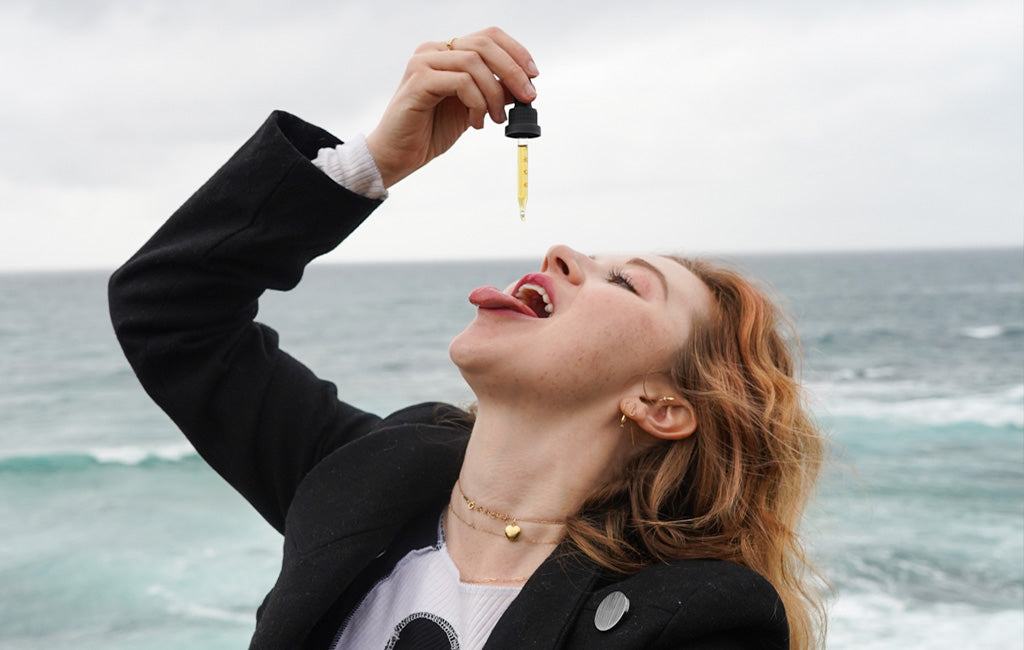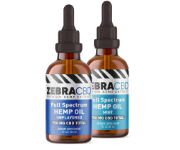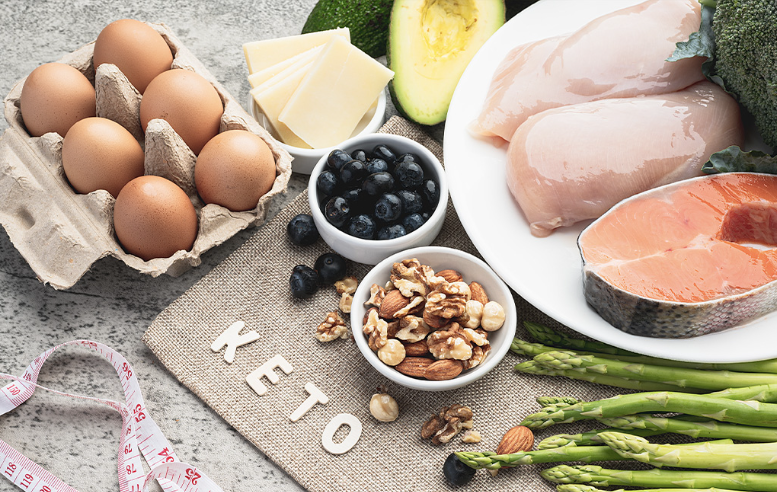
As of 2021, 33,480 acres of industrial hemp (Cannabis sativa L.) were harvested in the United States, totaling $824 million in revenue. All parts of the hemp plant are used for industrial purposes: The oil in the seeds can make hemp biodiesel, the stalks make various textiles and the leaves and buds are often added to food, drinks and body care products.
So, what is CBD flower? These buds, also called flowers, contain high levels of terpene, flavonoid and cannabinoid compounds— including cannabidiol (CBD). Since the 2018 Farm Bill was enacted, the production of CBD flowers in the United States has become widespread.
So, is CBD flower legal? Federally, yes. However, state laws may vary. Let’s explore.
The Legal History of CBD Flower in the United States
Before 2018, hemp was categorized as a controlled substance in the United States, meaning hemp and any products that contained hemp were federally illegal.
This all began in 1937 when the Marihuana Tax Act criminalized all cannabis, including hemp. Then, in 1970, President Nixon signed the Controlled Substances Act (CSA) into law as part of the government’s effort to combat drug use and addiction in the United States.
The CSA provided a framework for classifying drugs according to their safety and potential for abuse. There are five schedules of controlled substances, and cannabis fell into Schedule 1, meaning the United States Drug Enforcement Administration (DEA) determined these substances have no “accepted medical use and a high potential for abuse.”
At the time, hemp was grouped with drugs like LSD, heroin and ecstasy.
This changed in 2014 when Congress passed the Agricultural Act, which initiated the Hemp Pilot Program. This program differentiated hemp from cannabis, defining hemp as any Cannabis sativa plant that contains 0.3% or less tetrahydrocannabinol (THC), the psychoactive cannabinoid that contributes to the "high" associated with marijuana. However, hemp could only be cultivated by state departments of agriculture and universities for research purposes.
In 2018, the Farm Bill was legalized, effectively removing hemp from the list of controlled substances and legalizing the cultivation, processing and sale of hemp in the United States.
Marijuana (cannabis plants with more than 0.3% of THC) is still considered a controlled substance on a federal level. That said, individual states still have authority over the regulation and legalization of all varieties of cannabis within their own borders, including hemp and its products, such as CBD.
Legality of CBD Flower State by State
CBD flowers are only found on female hemp plants and often resemble small, tightly knit bushels. They’re sticky, too, thanks to their trichrome coating, which is highly potent in CBD — a cannabinoid known for its potential therapeutic effects.
Vaping or smoking CBD flower is possible. CBD flowers can also undergo an extraction process that separates the CBD oil from the plant material. The oil can then be added to tinctures, CBD gummies and edibles or topical lotions and salves.
That said, the legality of CBD flowers in each state depends on each government’s ruling on hemp. Here’s the legality of CBD state-by-state, as of April 2023.
Alabama
CBD flower is legal in Alabama; however, it cannot be added to foods in the form of edibles. That said, restaurants and food shops can still sell CBD oil separately. (CBD oil is often made from a combination of hemp leaves, flowers and stalks).
Alaska
Alaska has legalized both hemp and marijuana, and CBD is not regulated on a state level. Consequently, CBD products are not tested for purity by state agencies.
Arizona
Arizona law aligns with the 2018 Farm Bill and authorizes the agricultural cultivation and sale of industrial hemp.
Arkansas
CBD flower products like tinctures, capsules and topicals are legal in Arkansas, but CBD cannot be added to any foods or drinks under state law. That said, is it legal to sell CBD flower products in Arkansas? Yes, but only from licensed dispensaries.
California
CBD flower products are legal in California, but CBD cannot be included in food products — and this includes pet food!
Colorado
Colorado has led cannabis legalization in the United States and authorizes the cultivation and sale of all CBD products, including CBD from marijuana plants.
Connecticut
Hemp-derived CBD products are legal and available in the state of Connecticut for both medical and recreational use.
Delaware
Once they pass required state testing, CBD flower products can be sold throughout Delaware. In fact, industrial hemp CBD was legalized on a state level even before the 2018 Farm Bill.
Florida
CBD products are legal in Florida. That said, topical CBD products are not regulated within the state, meaning consumers should use caution and dedicate extra research to any CBD product’s ingredients and potency.
Georgia
The Georgia Hemp Farming Act authorized the cultivation, processing and sale of CBD products, but this does not include food products.
Hawaii
Hawaii adheres to the laws set by the 2018 Farm Bill, and CBD is an approved ingredient in food, beverages and body products.
Idaho
CBD isolate is the only form of CBD that’s legal in Idaho. Unlike full-spectrum CBD and broad-spectrum CBD, which contain additional cannabinoids, flavonoids and terpene compounds, CBD isolate only contains CBD. Effectively, it’s highly potent.
Illinois
In 2018, Illinois also passed an Industrial Hemp Act that legalized industrial hemp products and CBD within the state.
Indiana
CBD products with 0.3% of THC or less are legal in Indiana. However, smokable CBD flower is still illegal in the state.
Iowa
In Iowa, CBD products must be manufactured and sold with a retailer that’s registered with the state. Like Indiana, smokable CBD flower is not legal.
Kansas
Kansas initiated its own Hemp Program that all CBD products must be cultivated and sold under to be legal. Additionally, full-spectrum CBD products that contain trace amounts of THC are illegal.
Kentucky
Hemp production is legal in Kentucky, but farmers must have a license with the state. Accordingly, CBD products are authorized as well.
Louisiana
Hemp CBD oil is legal in Louisiana, but marijuana CBD oil is only legal if consumers have a medical license.
Maine
CBD hemp flower and CBD products are legal in the state of Maine.
Maryland
Food and beverages that contain CBD are not legal in Maryland, but other CBD products are perfectly legal to buy and use.
Massachusetts
CBD and CBD hemp flower are legal in Massachusetts and widely available in dietary supplements, animal feed, food products and products that tout potential therapeutic effects.
Michigan
CBD flower is legal in the state of Michigan, and there are no legal age restrictions when purchasing CBD oil.
Minnesota
CBD products are available in Minnesota, so long as they are tested for potency and safety and accurately labeled.
Mississippi
CBD is legal in Mississippi, but growers must obtain a license from the United States Department of Agriculture (USDA) before growing, processing and selling any type of hemp product.
Missouri
CBD products with no more than 0.3% THC are legal in Missouri and can even be infused into alcoholic beverages.
Montana
In Montana, CBD is entirely legal, with very few caveats.
Nebraska
Nebraska’s Hemp Farming Act legalized hemp and CBD within state borders. Growers must obtain a license from the Nebraska Department of Agriculture.
Nevada
Hemp-derived CBD is legal within Nevada.
New Hampshire
Like many other states, New Hampshire abides by the 2018 federal ruling, which legalizes all CBD products with trace amounts of THC.
New Jersey
According to the New Jersey Hemp Farming Act, hemp is not considered a controlled substance. Thus, hemp-derived CBD products and CBD flowers are entirely legal.
New Mexico
CBD tinctures, creams and edibles are legal in New Mexico for cultivation and sale.
New York
Since the New York Marihuana Regulation and Taxation Act (MRTA), hemp-derived CBD products are legal within the state of New York.
North Carolina
CBD products are legal in North Carolina, as long as they contain less than 0.3% of THC.
North Dakota
Hemp is legal to grow and sell within North Dakota, and hemp-derived CBD products are legal and available throughout the state.
Ohio
Ohio decriminalized hemp in 2019. Since then, CBD edibles, CBD tinctures and topical CBD products are legal for cultivation, sale and purchase.
Oklahoma
In 2019, the governor of Oklahoma signed a bill that legalized hemp cultivation and the sale of hemp products with trace amounts of THC.
Oregon
All CBD products, including CBD bud, are fully legal in the state of Oregon.
Pennsylvania
CBD is legal in Pennsylvania; however, it follows rules and regulations set by the U.S. Food and Drug Administration, meaning it cannot be added to any foods.
Rhode Island
CBD is legal in Rhode Island, but there is no state legislation that sets standards for its cultivation or production.
South Carolina
In South Carolina, retailers cannot market CBD products as dietary supplements. Besides that, CBD flower and CBD are legal in the state.
South Dakota
Currently, industrial hemp is legal in South Dakota. However, its legal status may change in the coming years as South Dakota’s CBD laws are still being developed.
Tennessee
CBD bud is legal in Tennessee, and CBD products can be purchased at many retailers, dispensaries and lounges throughout the state.
Texas
Yes, CBD is legal in Texas as long as it contains under the legal limit of THC.
Utah
CBD is legal in Utah and widely available for purchase.
Vermont
CBD products are legal in Vermont, and there are very few restrictions limiting the type of products sold.
Virginia
CBD flower is fully legal in Virginia.
Washington
Both marijuana- and hemp CBD flowers are legal in Washington state.
West Virginia
CBD is legal in West Virginia, and no licenses are required to cultivate, process or sell CBD products.
Wisconsin
CBD is legal in Wisconsin when it comes from hemp plants and contains only trace amounts of THC.
Wyoming
CBD products are legal in Wyoming if they fall under the federal limits of THC.
Legal Disclaimer
The information contained above is provided for educational and informational purposes only, and should not be construed as legal advice. The provided information may not reflect current legal developments or information, and is not guaranteed to be correct, complete or current. We recommend checking our source(s) to see if the information or legal status have been revised since our content was published.
Purchase Premium CBD No Matter Your Location With Zebra CBD
Since its federal legalization, the components of the hemp plant, including CBD flower, are legal across the United States. While some states have stricter regulations surrounding the cultivation and manufacturing of CBD products, all U.S. citizens can legally purchase CBD products — even online. However, before you purchase, be sure to read up on the differences between hemp flower vs CBD flower, and find answers to questions like, “does CBD flower expire?” so you can learn how to store your CBD hemp bud and flowers properly.
At Zebra CBD, we offer a bounty of CBD products made with premium hemp extract. Whether you’re looking for a fruity CBD edible or the convenience of CBD capsules, we’re committed to providing top-quality products that abide by the statutes of healthy living.
Source:
United States Department of Agriculture. Value of hemp production totaled $824 million in 2021. https://www.nass.usda.gov/Newsroom/2022/02-17-2022.php
Brookings. The Farm Bill, hemp legalization and the status of CBD: An explainer. https://www.brookings.edu/blog/fixgov/2018/12/14/the-farm-bill-hemp-and-cbd-explainer/
DEA. Drug Scheduling. https://www.dea.gov/drug-information/drug-scheduling
Forbes. Your Guide To CBD Legalization By State. https://www.forbes.com/health/body/cbd-legalization-by-state/










